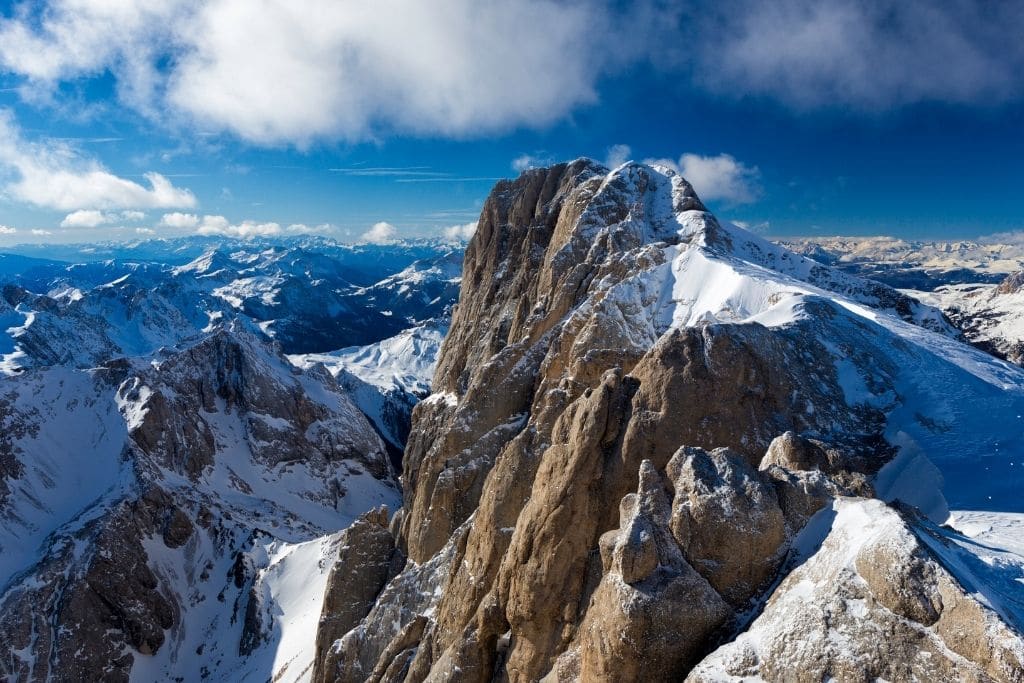Seven were killed and 13 are still missing after a glacier collapsed in northern Italy on Sunday, triggering a devastating avalanche, as scientists agree the incident is an undeniable consequence of global warming.
—
A glacier the size of two football courts collapsed on Sunday on the Marmolada – the highest peak in the Dolomite range, triggering a massive avalanche that slid down at 300km/h.
Those hiking in the area where the massive glacier collapse occurred were caught by surprise and had no time to escape. Authorities confirmed seven deaths and 10 injured so far, while 13 climbers are still missing. On Monday night, rescuers halted the search for the missing hikers, describing the conditions downslope from the glacier as “too unstable” and admitting that the chances of finding anyone alive were “very, very slim”.
Experts say the disaster was the worst of its kind in decades and the record high temperatures this season have played a role in accelerating the melting of ice. At the time of the disaster, the temperature at the summit of the 3,300m-high glacier had reached more than 10C, which is extremely abnormal.
Poul Christoffersen, professor of Glaciology at the University of Cambridge, told Reuters that “high elevation glaciers such as the Marmolada rely on cold temperatures below zero degrees Celsius to keep them stable”.
“Climate change means more and more meltwater, which releases heat that warms up the ice if the water re-freezes, or even worse: lifting up the glacier from the rock below and causing a sudden unstable collapse,” he added.
Italy’s Prime Minister Mario Draghi – who travelled to the Alps on Monday – said the government must “reflect on what happened” and “make sure such tragedies do not happen again in the future”. While the tragedy had some “unpredictable” elements, it also “undoubtedly depended on the deterioration of the environmental and climate situation” he said.
According to the Italian National Council for Research (CNR), the Marmolada glacier will disappear by 2050 due to the effects of global warming. Renato Colucci, professor of Glaciology at the University of Trieste and researcher at the CNR told an Italian newspaper that “the current climate no longer supports the existence of glaciers that developed thousands of years ago” and tragic events like the one that happened on Sunday are “destined to happen again”.
Italy has not been spared by the heatwave that hit Europe in recent weeks and many cities in the peninsula have been experiencing record high temperatures for days. In many regions, it has barely rained in months. This has caused the worst drought in more than 70 years, impacting crops and triggering water rationing in some areas.
The River Po, the country’s longest river that flows from the Alps, reached unusually low levels, sparking fears among farmers whose agricultural activities largely depend on the river’s water. The vast valley around it – called the Po Basin or Po Valley (Italian Pianura Padana) – is the main industrial and agricultural area of the country with the moist and extremely fertile floodplain reserved for most of the country’s wheat and barley. If the drought persists, 30% of Italy’s crops will be lost this year.
You Might Also Like: Glaciers Are Melting More Rapidly Than Ever Before, Risking Floods and Droughts


















